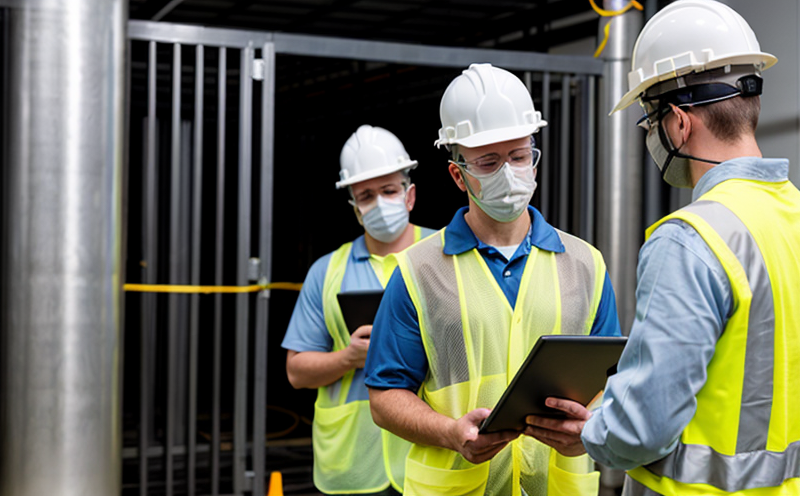OSHA 1910-178 Forklift Safety Regulations
The Occupational Safety and Health Administration (OSHA) 1910.178 standard is a critical component of workplace safety regulations, particularly in industries where powered industrial trucks such as forklifts are used extensively. This regulation aims to reduce the risk of injury or death resulting from the operation of forklifts in workplaces. Compliance with these standards not only ensures legal adherence but also significantly enhances the safety and well-being of workers.
OSHA 1910.178 applies to employers whose employees operate powered industrial trucks, such as forklifts, order pickers, stackers, side loaders, and other similar equipment in their operations. The standard covers a wide range of topics including but not limited to, operator qualifications, training programs, maintenance practices, load handling procedures, and the use of personal protective equipment (PPE).
The regulation is based on recognized industry standards such as OSHA 1910.178 and takes into consideration the safety requirements outlined in ISO, ASTM, EN, and IEC standards for industrial trucks.
The primary focus of this regulation is to ensure that all employees operating powered industrial trucks receive proper training and are familiar with safe practices. This includes understanding the limitations of the equipment they operate, recognizing hazards associated with specific tasks, and knowing how to respond in case of emergencies. The standard also mandates regular inspection and maintenance of forklifts to prevent breakdowns and malfunctions that could lead to accidents.
Employers are required to provide comprehensive training programs that cover all aspects of safe operation, including but not limited to, proper seating posture, handling loads safely, recognizing traffic hazards, and operating in various weather conditions. Additionally, the standard emphasizes the importance of using appropriate personal protective equipment (PPE) such as safety helmets, reflective vests, and hearing protection.
The use of forklifts is a critical aspect of many industrial operations, but it also poses significant risks to workers if not handled properly. By adhering to OSHA 1910.178 guidelines, employers can significantly reduce these risks. Proper training ensures that operators are aware of the potential dangers and know how to avoid them. Regular maintenance checks help prevent breakdowns which could lead to accidents.
Compliance with this regulation is essential for maintaining a safe work environment, reducing liability exposure, and fostering a culture of safety within the organization. It is important for quality managers, compliance officers, R&D engineers, and procurement personnel to understand these requirements fully so they can effectively implement them in their respective roles.
In summary, OSHA 1910.178 provides a comprehensive framework for ensuring safe operations when using powered industrial trucks like forklifts. By following its guidelines, employers can create safer working environments while also complying with federal regulations. Understanding and implementing these standards is crucial for maintaining compliance and promoting worker safety.
Eurolab Advantages
At Eurolab, we pride ourselves on providing high-quality laboratory testing services tailored to meet the specific needs of our clients across various sectors including manufacturing, construction, and logistics. When it comes to OSHA 1910-178 compliance testing for forklift safety regulations, our team offers several key advantages:
- Expertise in Industrial Truck Safety: Our experienced technicians possess deep knowledge about powered industrial trucks and understand the intricacies of maintaining safe operating conditions.
- Comprehensive Training Programs: We provide detailed training programs aimed at equipping operators with essential skills necessary for safely handling forklifts.
- State-of-the-Art Equipment: Utilizing advanced technology ensures accurate and reliable testing results every time.
- Strict Compliance to Standards: Ensuring that all tests conducted adhere strictly to relevant international standards like OSHA 1910.178, ISO, ASTM, EN, and IEC.
- Custom Solutions: We offer customized solutions based on client requirements ensuring maximum effectiveness of our services.
- Rapid Turnaround Times: Efficient processes allow us to deliver results quickly without compromising quality.
Our commitment to excellence sets Eurolab apart from other service providers. With years of experience in this field, we have built a reputation for reliability and accuracy in our testing services.
Why Choose This Test
- Compliance with Legal Requirements: Ensuring adherence to OSHA regulations helps protect your company from potential legal issues.
- Increased Employee Safety: Regular testing and inspection reduce the risk of accidents involving forklifts.
- Enhanced Workplace Environment: A safer workplace leads to higher morale among employees, increased productivity, and better overall business performance.
- Potential Cost Savings: Preventive measures can save your company money by avoiding costly repairs or replacements due to breakdowns caused by neglecting regular maintenance checks.
- Improved Reputation: Demonstrating a commitment to worker safety enhances your company’s reputation and attracts more customers who value responsible practices.
- Reduction in Liability Exposure: By complying with OSHA standards, you reduce the chances of being held liable for accidents occurring at your workplace.
Selecting Eurolab for your OSHA 1910-178 compliance testing ensures that you receive top-notch service from experts who understand both the technical aspects and broader implications of these regulations. Our comprehensive approach guarantees that your organization meets all necessary standards while minimizing disruption to daily operations.
International Acceptance and Recognition
The Occupational Safety and Health Administration (OSHA) 1910-178 standard enjoys widespread international recognition due to its emphasis on worker safety and compliance with global health and safety standards. Many countries have adopted similar regulations based on OSHA's guidelines, ensuring consistent practices across different jurisdictions.
For instance, European Union directives such as the Machinery Directive (2006/42/EC) incorporate principles from OSHA 1910-178 regarding operator training and safety measures. Similarly, Australia’s National Standard AS 3753:2017 for powered industrial trucks aligns closely with these American standards.
The global acceptance of OSHA 1910-178 underscores its importance not just domestically but internationally as well. Companies operating in multiple countries benefit greatly from having familiar safety protocols regardless of location. This consistency allows businesses to maintain uniform standards across their operations worldwide.
Given the growing trend towards harmonization of occupational health and safety regulations globally, it is evident that OSHA 1910-178 continues to set benchmarks for best practices in industrial truck safety. Its enduring relevance highlights its significance in promoting safe working environments around the globe.





